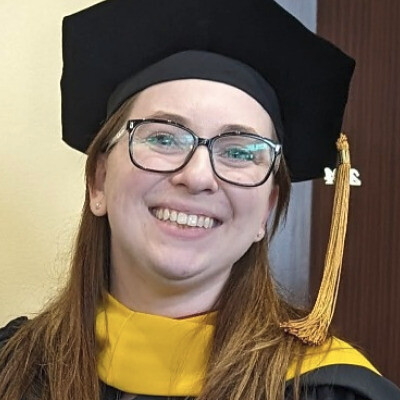
Marissa
Ferrito,
PsyD
Postdoctoral Fellow in Clinical Psychology and Interprofessional Education
Philadelphia College of Osteopathic Medicine
Dr. Ferrito received her Bachelor’s Degree in Psychology from Drew University in 2013, followed by her Master’s in Mental Health and Wellness Counseling from New York University in 2017. She received her Doctor of Psychology in Clinical Psychology from PCOM in 2024. Dr. Ferrito’s previous clinical experiences are primarily in community mental health, university counseling, and integrated behavioral health settings. She enjoys working with chronic health conditions, sexual health/functioning, and weight/eating concerns. Dr. Ferrito is passionate about community education, advocacy, and interprofessional education (IPE).
Presenting at the Nexus Summit:
The Center for Disease Control (CDC, 2024) defines personal health literacy as “the degree to which individuals have the ability to find, understand, and use information and services to inform health-related decisions and actions for themselves and others.” Improving health literacy is an ideal, shared value, and ethical responsibility of all team members in collaborative, patient-centered care in addition to improving patients’ trust and health equity (CDC, 2024). Thus, it is an ideal topic to bring two or more professions together for interprofessional education (IPE). This presentation…
Background:Leadership development and professional identity formation are critical to early interprofessional training (Shrivastava et al., 2022). This study analyzed self-reflections from second-year medical (DO) students who co-led interprofessional education (IPE) sessions with Clinical Psychology doctoral (PsyD) students as an IPE requirement. Leadership training was integrated into the curriculum by scaffolding the learning experiences across cohorts. This project introduces a faculty-directed and coordinated, student-led IPE initiative that utilizes film-facilitated discussions to…
Research on volunteerism has been shown to increase happiness in medical students; improve self-esteem, self-efficacy, and social connectedness; lead to better well-being; improve physical well-being, decrease stress, and improve overall quality of life in general adult populations. Volunteerism also creates fellowship and fosters community connections. Thus, volunteerism helps to address the wellness of the healthcare team (quadruple aim of healthcare), and bring future healthcare professionals closer to the populations they aim to serve. An IPE module focused on volunteerism, including PCOM…
This presentation explores an interprofessional education (IPE) module featuring a powerful narrative from a 53-year-old psychologist, ovarian cancer survivor, mother, and alumna of the host institution. She shared her 23-year journey, beginning with a diagnosis of a rare form of ovarian cancer at age 30 while pregnant and completing her doctoral training in psychology.Her story illuminated the complexity of navigating medical decisions in the absence of clear evidence-based guidance, while managing the emotions of a life-altering diagnosis. She described encounters with healthcare…
